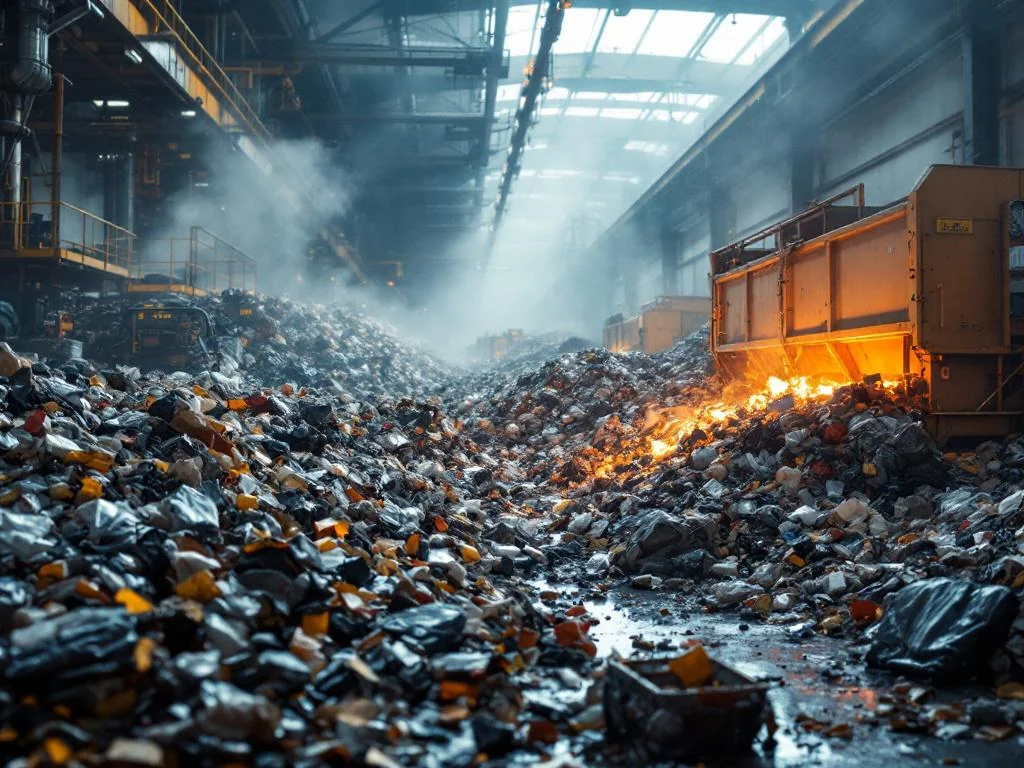Circular Economy and Growth: A Viable Alternative?
The circular economy, a concept that is gaining popularity, promises to reduce waste, conserve resources, and decrease the environmental impact of economic activities. But can it truly replace the infinite growth model that dominates our global economy? To answer this question, it is essential to understand the foundations of the circular economy and its practical applications.
Alternative Economic Models
The circular economy is based on several innovative models that aim to decouple economic growth from the exploitation of natural resources. The functionality economy, for example, focuses on providing services rather than selling products, thus reducing the consumption of raw materials[5].
Widespread repair and industrial reuse are also key pillars, encouraging product durability and minimizing waste. Territorial symbioses, where different companies collaborate to share resources and reduce waste, have also proven effective in certain regions.
Successful Experiments
Countries like the Netherlands and Costa Rica have implemented circular economy initiatives with promising results. In Costa Rica, for example, efforts to reforest and protect forests have not only reduced CO2 emissions but also generated significant revenue through sustainable tourism.
Systemic Resistances of Traditional Capitalism
Despite these successes, the circular economy encounters significant resistance from traditional capitalism. The infinite growth model, based on mass consumption and production, is deeply rooted in our economic systems. Multinational corporations, often accused of greenwashing, sometimes use the circular economy as a marketing tool to maintain their green image without truly changing their practices[3].
Pioneer Companies and Greenwashing
Some companies, like Interface, Patagonia, and Fairphone, have truly transformed their business model by adopting sustainable practices. Interface, for example, has managed to reduce its environmental impact by using recycled raw materials and minimizing waste in its production processes.
However, other multinationals use the circular economy as a simple communication tool to improve their public image without making significant changes to their practices.
Public Policies and Behavioral Changes
For the circular economy to become a viable alternative, strong public policies are necessary. This includes implementing strict regulations on waste, incentivizing businesses to adopt sustainable practices, and educating the public about the importance of responsible consumption.
Behavioral changes are also crucial. Consumers need to be made aware of the benefits of the circular economy and encouraged to adopt more sustainable consumption habits.
Decoupling Economic Growth and Environmental Impact
The fundamental question remains: can we decouple economic growth from environmental impact? The theories of degrowth and post-growth propose radical alternatives, where economic growth is no longer the main objective but rather social and environmental well-being.
These approaches, although radical, offer an interesting perspective on how to reorganize our economic systems for long-term sustainability.
Conclusion
The circular economy offers hope for transforming our economic models, but it must be accompanied by strong public policies, significant behavioral changes, and a genuine willingness to change business practices. As we navigate the complexities of transitioning to a more sustainable economy, it is crucial to remain critical and demand concrete actions rather than empty promises.
SOURCES:
– https://www.ellenmacarthurfoundation.org/ – Ellen MacArthur Foundation, a pioneer in promoting the circular economy.
– https://www.interface.com/ – Interface, a leading company in sustainability and the circular economy.
– https://www.patagonia.com/ – Patagonia, a company committed to sustainable practices and the circular economy.
– https://www.fairphone.com/ – Fairphone, a company that promotes ethical and sustainable phones.
– https://www.costarica.com/ – Official website of Costa Rica, presenting the country’s sustainability and circular economy initiatives.
– https://www.government.nl/topics/circular-economy – Government of the Netherlands, initiatives and policies on the circular economy.
– Web sources automatically searched by Perplexity
– 2 references cited in the article
– Automatic validation of recent sources
**bold text**
Sources
https://www.ellenmacarthurfoundation.org/
https://www.interface.com/
https://www.patagonia.com/
https://www.fairphone.com/
https://www.costarica.com/
https://www.government.nl/topics/circular-economy
https://www.ellenmacarthurfoundation.org/
https://www.interface.com/
https://www.patagonia.com/
https://www.fairphone.com/
https://www.costarica.com/
https://www.government.nl/topics/circular-economy



